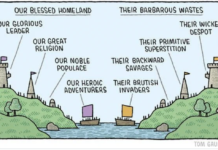As a lobby group trying to make change for the better and in line with the work we are focusing on in the community, I have decided to dissect, for want of a better word, all political party’s justice and policing polices.
Every other day we see David Seymour campaigning on law and order, buying votes with money that this country doesn’t have, so I have decided to start with the Act party.
Gang Control Orders: ACT will introduce a new policy of Gang Control Orders to crack down on gang members and minimise the risk posed to the public. A policy that simply is words buying votes. The gang issue has been a political football for years and look where we are today. Legislative changes won’t make difference and that was proved with the gang laws brought into legislation in 1996 which simply failed, also let’s not forget in 1972 when Norman Kirk promised to take the bikes off the bikies, but what did he do when he was elected? Absolutely nothing. I was hoping that we as a voting public might get a little bit smarter to this, but we buy it every time because it sounds nice and easy.
Tax law apply to everyone, even gang members: ACT will use Inland Revenue’s powers to investigate gang members’ income and tax paid. Again, a policy of words. IRD has powers to investigate now and simply these people operate above the law. If Act think that Mr Asia used his everyday bank account to run his drug/money laundering business, they need to go back to school.
Youth infringement notices: ACT will introduce an infringement notice offence for shoplifting, resulting in instant, practical punishments such as fines and community service to ensure the shoplifter takes responsibility for their offending. This policy screams of ignorance. Who is going to pay the fines when they are dished out in their thousands? Currently the debt level owed to the government for fines is in the hundreds of millions. Why? Because the offenders have no money to pay and if they do it will be set at five dollars per week.
Ankle bracelets for serious youth offenders: ACT will introduce ankle bracelets for serious youth offenders. A policy that will give the Police or Oranga Tamariki eyes on these young offenders but does not address the root cause of this offending. An expensive policy that will cost the taxpayer with no return on the investment.
Review the sentencing for electronic monitoring: ACT will review the use of electronic monitoring sentencing for violent offenders and abolish the prison population reduction target. Finally, the sun comes out with logical policy, but the solution is not easy. The level of offending that an ankle bracelet is allowed for needs to be considered yes but these offenders need monitoring on a regular basis and also support for them in the community. Currently there is a huge lack of professionals, psychologists, psychiatrists to assess these people’s rehabilitation needs, so as I have said words are easy, but this policy will need some serious work and investment to be a success.
Ensure victims of crime receive their reparations: ACT will reform the reparations system so that the Crown faces the burden of risk of slow reparation payments or non-payments, rather than the victims of crime. Victim reparation is available now but as I have said most offenders have no money or assets. Act have said they will turn the burden of victim reparation on to the taxpayer, remember people the crown is the taxpayer. This will cost hundreds of millions on a yearly basis, and I will even say open up the door to false allegations for the sake of reparation. This is why countries like America have public insurance policies, so the burden doesn’t fall on the taxpayer.
Three Strikes: Three Strikes was an ACT idea introduced in 2010 to send a signal to violent offenders that New Zealanders won’t tolerate repeated violent and sexual offending. Currently a judge has the power to imprison a person to the full term of imprisonment that that offence carries. EG, Murder is mandatorily a sentence of life imprisonment but generally we see a minimum non parole period of 17-20 years before the offender can apply for parole, but the offender is still on parole for life under the watchful eye of probation. A good policy but one our judges never wanted to use because it was manifestly unjust. I will be interested to see how they intend to make the judiciary implement it. We suggest you all do more research on this policy.
Three Strikes for Burglary
ACT will also introduce a separate Three Strikes regime for burglary offences. Criminals who commit three burglary offences would face a minimum three-year prison sentence with no parole. Here we go again, little thought put into this policy. I have said before, how can we expect corrections to stop this kind of offending when they do not have the tools to do so. A recidivist offender needs help, and being punitive is not the solution. Agree offenders need to pay a price to society, but this policy is simply like a revolving door at the hotel, in one door out the other, ambulance at the bottom of the cliff material.
Minimum literacy standards for parole
ACT will require individuals to complete skills or rehabilitation programmes prior to being considered for parole. Just when the sun was starting to come out, the clouds start rolling in. I agree that education while in prison is a good thing and should be mandatory, but I am sorry when an offender has completed their sentence we can’t say “have you passed school certificate”. Again, the main issue here is the lack of available qualified people to implement this policy. There aren’t enough teachers in our education system without trying to find more for the corrections system. Let’s think about rehabilitating these offenders based on the crime they commit first and when we are successfully doing that then consider the qualification of a person. I’m not saying literacy isn’t important because it is but in this situation it is secondary.
Politics out of Policing: ACT will ensure there are always enough Police on the beat instead of recruitment being a political football. ACT are the face of political footballing. Great policy having more police, but this policy reeks of recruitment being made easier, dangerous with a capital D. Quality of applicants needs to be paramount always.
So, people on a rating scale of 1-10 I’ll happily give ACT a 4 based on the lack of thought put into these policy’s especially given the cost associated with these vote buying policies that most will probably never come to fruition, given the MMP political system we currently have.
Jackie Foster, CEO, Social Justice Aotearoa





So, in a nutshell, Act crime policies are a load of inane BS!
But still way better than Labour’s catch & release, cuddles for crims policies.
No, way poorer which we all will be except the top 1% should National get back in. Unless I open my own youth prison or ankle bracelet company. We will all become rats in a cage.
A sane analysis of ACT’s proposals, the old lead a horse to water but can’t make it drink proverb comes to mind when discussing changing wrong behavior. Unless people want to change any program will have limited influence, for people to want to change they need to see that a better life is available by complying with the rules, in all honesty telling people that if they go straight they might be able to get an overpriced scum rental, work for some employer who will be all take & no give, then just buying the basics regarding food/transport will leave them poor is not the option that will encourage people to change.
I am not particularly an Act supporter but the policies as stated seem pretty good to me . Labours soft touch has failed to make the person in the street feel protected or cared for . The Act policy get 8 out of ten from me .
Which part was most appealing the reparations piece or total lack of effort to do anything about drivers of crime?
Trevor
What we are trying to do is get people to think about the policies being put forward because clearly some policies are shrouded in a smoke screen. Are you suggesting making the taxpayer liable to pay the financial reparation to the victim is a cost thought out policy? We are not suggesting for one minute that compensation shouldn’t be paid but all policy needs to be costed and the taxpayer needs to understand the implications of the actual policy and not just read the title and say, “that’s great”. Remember the current government how their policy was to introduce light rail from Auckland airport to the CBD, something that never eventuated but has cost the taxpayer $140 million to date for nothing!
Trevor
What we are trying to do is get people to think about the policies being put forward because clearly some policies are shrouded in a smoke screen. Are you suggesting making the taxpayer liable to pay the financial reparation to the victim is a cost thought out policy? We are not suggesting for one minute that compensation shouldn’t be paid but all policy needs to be costed and the taxpayer needs to understand the implications of the actual policy and not just read the title and say, “that’s great”. Remember the current government how their policy was to introduce light rail from Auckland airport to the CBD, something that never eventuated but has cost the taxpayer $140 million to date for nothing!
Trevor are you forgetting 13 years of three strikes has not made Aotearoa a safe place? In fact crime has risen in the last 13 years. Thoughts?
Murder is mandatorily a sentence of life imprisonment but generally we see a minimum non parole period of 17-20 years before the offender can apply for parole. It has been mandatory to serve 10 years now since 2003 but why are some of our judges giving sentences of 11years for murder when they should get longer and save the family the stress of attending parole for years. Also, there are inconsistencies with sentencing with some judges being softer. Then we have NZ Police doing plea deals with criminals in exchange for information. And when sentencing the Judge is supposed to consider previous charges when this is not always applied.
Three strikes did not work in America, and it won’t work here. Rehab in NZ prisons is a joke and no one in NZ wants to be a prison guard. Privatisation of prisons in America has created billion-dollar industry for the rich and well connected.
Longer sentences and jammed packed prison will come at a billion-dollar price and those people eventually have to get out into society. Apart from that I agree with everything else you have said.
Having worked in the criminal justice sector for a considerable amount of time, I need you to show me a murder sentence in Aotearoa that was only 11 years as you state? Murder in this country has and always will carry a life in prison sentence and normally, with the exception of the Christchurch Terrorist, there will be a minimum sentence imposed of around 17 years before the offender can apply for parole, so i again question where you get 11 years from. Once paroled that offender is on parole for life and has restrictions imposed on them for life and can be recalled to prison at any time. A sentencing judge will consider previous charges of the same kind, so if some is previously convicted of assault and 2 years later is convicted of burglary the assault charge is not taken into account but their behaviour is. Three strikes, I agree with your opinion as does Jackie, where I think her advocacy group don’t think it will work and I have seen previous blogs from Jackie saying that they are opposed to privately run prisons in this country.
Ah Go! I hate this. I was beautifully interrupted and now I can’t remember if I’ve already posted this. Apologies for the double-date.
Ya had me until here.
You write:
“This is why countries like America have public insurance policies, so the burden doesn’t fall on the taxpayer.”
People within a social-ist democracy are, by default, a large, smelly, noisy, rowdy family who mostly don’t know each other, other than when we’re all part if the same large, smelly, noisy, rowdy family at a rave or a rugby match. We must NOT be defined by the burden of responsibility as though some of us are all howdy-do while others are contemptible wretches who draw the ire of the profit-orientated creatively cruel. It’s a funny thing too that the loudest voices railing against paying taxes are by those who pay the least in taxes.
Also, and perhaps most importantly, the moment dysfunction is monetised, as it has been in the U$A, at-risk people become a financial resource for insurers and lawyers and a wailing wall for wanna be politicians trying to secure tenancy on the empty spaces within the minds of swing voters. Swing voters? Stay at home. Have a cup of tea. She’ll be right.
Just ask hideous seymour after he gets out of his Gimp suit and roger lets him out of the dungeon.
To paraphrase Aleksandr Solzhenitsyn. ” Criminals are the product of their society.”. In AO/NZ, a post-roger neo-liberal incubator for criminals and crime, the real criminals have mansions in Auckland’s Remuera while the real victims of crime get banged up. I like irony but that’s ridiculous.
In short @ Jackie Foster, and you’re probably not that short. Your logic has done a U turn part way through your argument and is now racing off in the opposite direction.
So, are you suggesting that you will happily see all compensation or reparation to all victims of crime paid by the taxpayer? Currently in the hundreds of millions?
As for your suggestion that “criminals are a product of their own society” as you put it, that is crap! I have said many times publicly that no one is born a criminal but when children are dragged up, no food, surrounded by drug and alcohol abuse, violence and lawlessness it becomes the norm, and the proof is in the pudding where in Aotearoa we have generational crime, grandfathers, fathers and sons who have all be through the criminal justice system, products of broken homes and parents that don’t care and governments that fail them because they repeatedly say “oh no we can’t possibly go into a private home and intervene, that would be invasion of privacy”. This is the problem in society, we judge people before we understand the journey they have travelled understanding what has brought them to this point in their lives. I am not suggesting soft on crime, simply understanding so these people can actually get the rehabilitation they need.
Comments are closed.